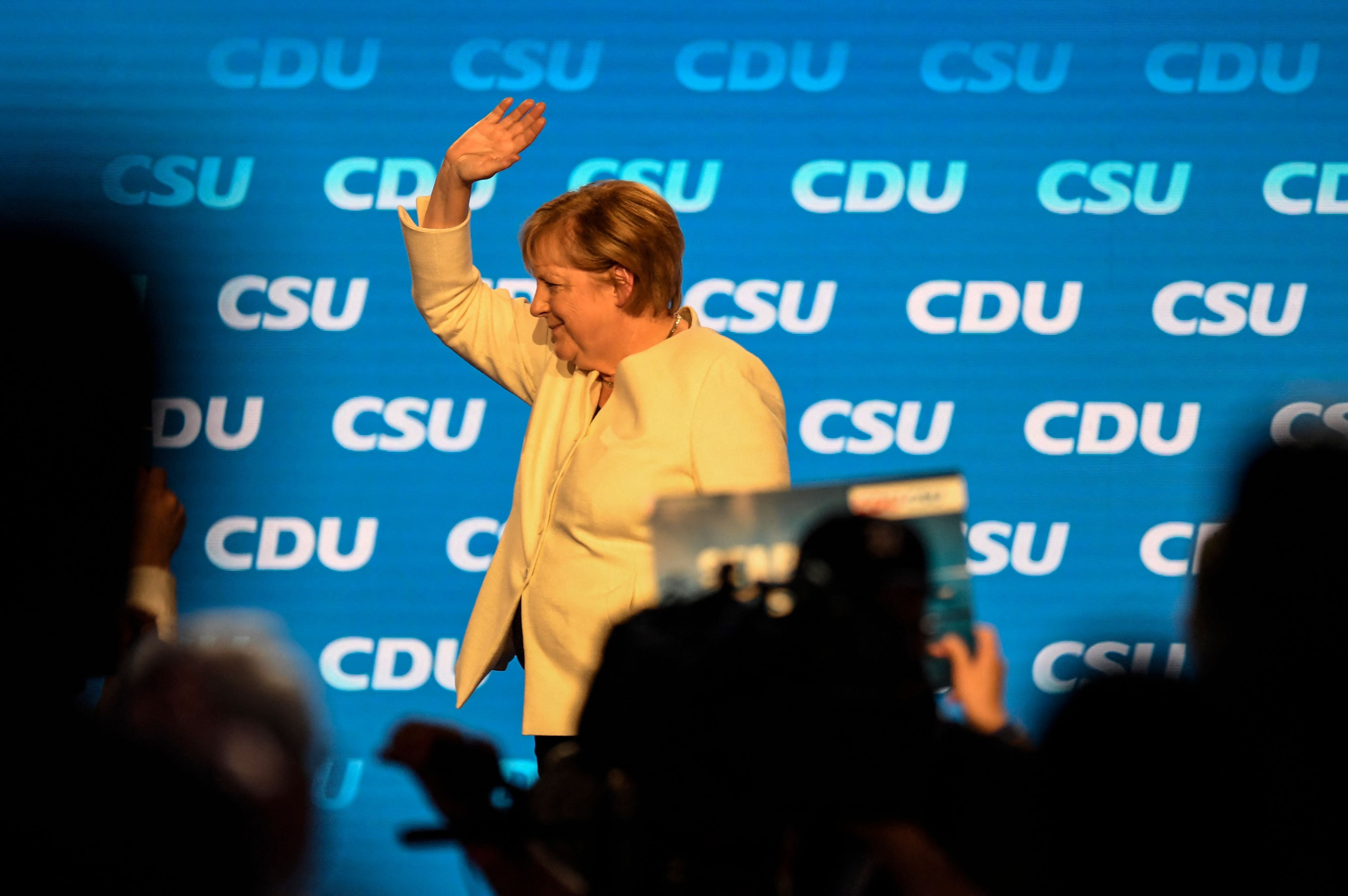Germany now faces a dark and difficult decade
Whoever becomes the next chancellor will face serious economic challenges, writes Hamish McRae


Angela Merkel remains the German chancellor for a while yet – until some new coalition is stitched together – but already the knives are out. She is being attacked for being too indulgent towards Russia, or worse, allowing a potentially hostile country to establish control over its energy supplies with her support for the Nord Stream 2 pipeline.
Her decision to phase out nuclear power has made Germany’s electricity industry more reliant on coal and lignite, which last year supplied one-third of the country’s power. She has been criticised on many other issues, too.
But whatever view you take of her record, one thing stands out. The German economy has been a success story. Take unemployment. That was at 5 per cent on the eve of the pandemic, down from nearly 12 per cent in 2005 when she took office. Or Germany’s fiscal position. In 2005, the deficit was more than 3 per cent, breaking the level set in the EU Growth and Stability Pact. By 2019, the country was running substantial budget surpluses. Exports have been strong – with the country now the world’s largest exporter of cars and medicines – and Germany is running a huge export surplus.
Much of this success has happened under the chancellorship of Angela Merkel. Germany was dubbed “the sick man of Europe” in the early years of this century, but labour and market reforms brought in under Merkel’s predecessor Gerhard Schröder built the ground for the transformation that then occurred on her watch. She inherited an economy that was in trouble, but also the policies that dug it out of that trouble. So what will she bequeath to her successor?
The charge against her is that as far as the economy is concerned she has been lucky, and that the next 10 years are likely to see Germany face much stronger headwinds than it has over the past.
There are three main forces behind those headwinds. The first is demography. Germany is ageing fast. True, the influx of refugees over the past few years has brought in large numbers of young people and as a result the country’s population rose between 2011 and last year. But now it is falling again – and while the projections vary, it seems set to continue to decline through the next 30 years, with the sharpest decline in the 20 to 60 age group.
The second is the structure of the economy. To be the world’s greatest car exporter may not be so much of a strength if that industry stagnates. Robert Bosch, the German components manufacturer, thinks that the world may have reached its peak in car output. And in any case, there are evident weaknesses in the industry. The two great innovations in recent years, the development of hybrids and of electric cars, were pioneered in Japan and the US, not Germany. German companies instead continued to focus on diesel cars, concealing the level of their toxic emissions.
The motor industry is now reforming itself. It is rapidly developing electric cars, and four former VW executives are currently on trial for their role in the diesel emissions scandal. That other great German industry, pharmaceuticals, is at the cutting edge of drug development, and the BioNTech invention of an extremely effective vaccine against Covid-19 is testimony to that. No one should ever underrate the country’s technical competence. But Germany shares Europe’s wider weakness in failing to create new high-tech winners on the scale that the US and China have done. Its main attempt to do so, the payments company Wirecard, ended in disaster. The business is insolvent, and one of its leading executives is a fugitive from justice.
There is a third challenge. Germany is very dependent on exports, and in particular exports to China – its largest trading partner. If the general trend towards local manufacturing gathers steam, and if relations between the west and China deteriorate, Germany would be hit with a double blow. Both seem reasonable possibilities. One of the lasting effects of the current supply chain glitches is for enterprises to seek local producers rather than suppliers on the other side of the world. And as for China, it is hard to see the current tensions declining in the next few years. Germany will seek to remain on good terms with China, but that may create problems with its second-largest trading partner, the US.
None of this is to predict economic disaster for Germany. It is simply to point out that whoever does become the next chancellor will face serious economic challenges. I think people will look back on Angela Merkel’s time in office as a golden age, a period akin to the so-called “economic miracle”, or Wirtschaftswunder, as Germany recovered after the Second World War. That achievement, of course, must in fair measure be attributed to her calm leadership. But she leaves many problems for her successor. The 2020s will be darker years for Germany.



Join our commenting forum
Join thought-provoking conversations, follow other Independent readers and see their replies
6Comments